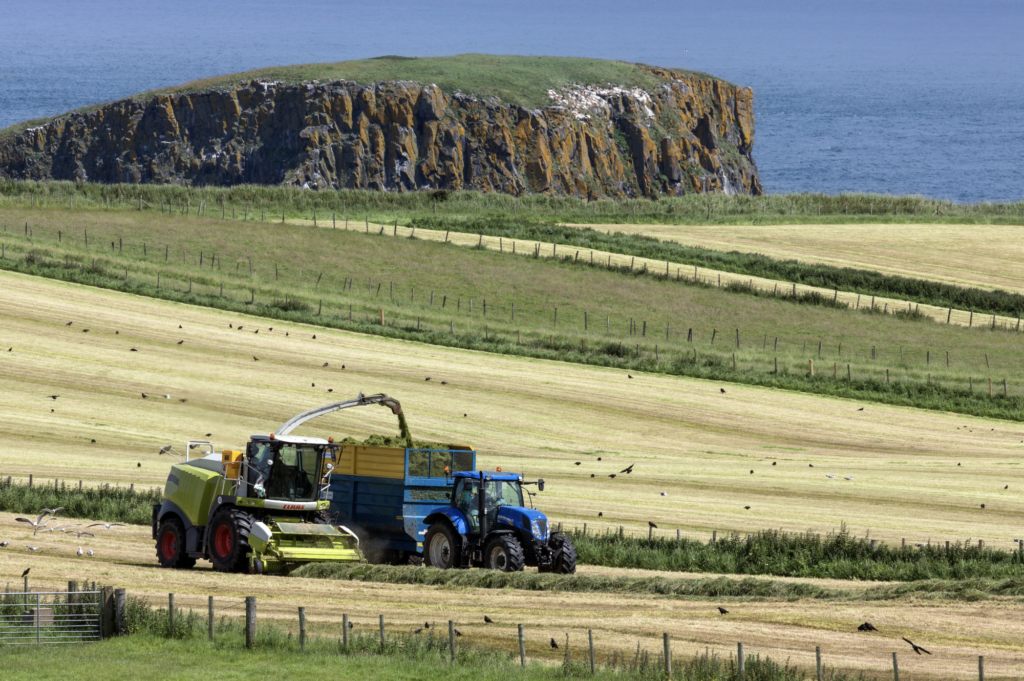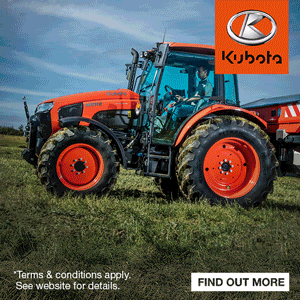Staying safe this silage season
19th May 2021
Leading rural insurer NFU Mutual is urging farmers to make safety their first priority as a delayed silage first cut gets underway. Andy Manson, Managing Director of NFU Mutual Risk

Leading rural insurer NFU Mutual is urging farmers to make safety their first priority as a delayed silage first cut gets underway.
Andy Manson, Managing Director of NFU Mutual Risk Management Services Limited, said: “Slow grass growth due to the dry and cold spring has delayed first cut – but following recent rain in some areas farmers are now rushing to get grass harvested and time pressures can add to risks.
“Silage making is one of the busiest times of the year for livestock farmers and contractors, and puts machinery and workers under a lot of strain. Tractors and trailers which may not have been out for months suddenly get used to the max, and long hours can increase the risk of accidents when drivers are tired.”
NFU Mutual strongly supports the Tilly your Trailer initiative. The Tilly Pass is an 18-point inspection procedure and certificate aimed at ensuring trailers are properly maintained, safe for road use and comply with safety legislation (HSE PUWER ‘98).
Andy Manson added: “This year, with many more people out and about in the countryside, it’s also important to make all team members aware of lanes and commonly used routes through fields used by walkers and cyclists so they can take care to avoid the risk of a collision.
“Even though COVID-19 cases have fallen substantially, it’s still important to maintain precautions – including social distancing, masks indoors and regular hand washing to reduce the risk of infection.”
To help farmers avoid accidents and breakdowns through the silage making season, NFU Mutual has updated its silage making safety checklist.
NFU Mutual silage safety checklist:
- Regularly check moving parts of mowers, tedders, forage harvesters and balers, including guarding e.g. PTO shafts, for wear or damage and carry out all recommended maintenance
- Switch off engines and ensure parts have stopped before clearing blockages or carrying out maintenance. Remove the keys as well to prevent accidental starting
- Put in place a system for keeping in contact with lone workers
- Keep mobile phones on your person – not left in a tractor or pick up cab
- Make sure drivers are aware of the locations and heights of overhead power lines (OHPL’s) and check that the machinery will safely pass under wires and restrictions
- Keep children away from working areas
- Never overfill a Silage Clamp as this increases the risk of vehicles overturning when rolling or filling
- For Indoor Clamps, keep away for the first 72 hours as this is when the dangerous gas nitrogen dioxide can form in large quantities
- If possible, use a hook or a pole to keep away from the edge of the face when unsheeting or removing tyres
- Make sure new staff are properly inducted and trained for the work you give them – in particular the dangers of working around farm machinery and the risks of being on a silage clamp
- Supervise new staff closely until you are sure they are competent to do the work
- Ensure trailers are road legal with fully maintained and working brakes, lights, indicators, and flashing beacons
- Take special care to check for following vehicles before turning right into fields or yards as this is a common cause of serious accidents
- Always work safely when consolidating the silage clamp, following best practice guidance for the task


